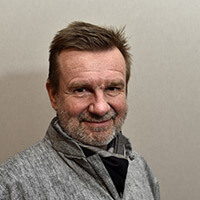Each new announcement these past weeks has confirmed what many were already predicting, but couldn’t yet put into numbers: Swiss watchmaking is in the midst of a slowdown or, to borrow the Federation of the Swiss Watch Industry’s description of 2014, a period of “consolidation at a high level”. There’s always benefit to be had from seeing the glass half-full, which in this instance means another record for Swiss watch exports, which ended 2014 up 1.9% at CHF 22.2 billion, exactly matching the previous year’s growth. Taken over five years, the industry has progressed at an astounding rate as Swiss watchmakers have notched up a 68.2% rise in exports, from CHF 13.2 billion to CHF 22.2 billion.
Clearly identified problems
A closer look at statistics, however, leaves no room for discussion. While in 2014 the increase in exports totalled 3.1% over the first half-year, it fell to just 0.8% for the last six months and even slipped into negative territory over the fourth quarter when it dropped to -0.3%. The Federation of the Swiss Watch Industry (FH) makes this comment: “Even if this downturn is not hugely significant in itself, the emerging trend in recent months points to a more difficult situation for Swiss watch exports, not to mention serious consequences attributable to the strength of the franc.” This was, indeed, the unwelcome news that greeted all Switzerland’s exporters in January. When it abandoned the Swiss franc’s cap against the euro, the Swiss National Bank took everyone by surprise. As a result of this decision, the value of the franc rocketed while the Swiss stock index slid by some 15%.

Since then, Switzerland’s main equities have regained virtually half their value although for watchmakers, problems remain intact. And these problems have been clearly identified. The strong franc will doubtless constitute a long-term handicap that has already prompted most brands to add between 5% and 7% to their prices in the euro zone; some have cut the prices they charge in Switzerland. Other factors add to watchmakers’ woes: the collapse of the rouble, tensions in Hong Kong, a slowdown in China and falling petrol prices are making their consequences felt in the respective markets and have been widely commented on within the profession. Distributors are at risk of finding themselves with excess inventory on their hands, if this isn’t already the case.
Optimistic nonetheless
Results announced by the industry’s two biggest players confirm this “new deal”. First Richemont, which published its sales figures over nine months. These are in line with forecasts made by analysts, who are among the first to integrate market trends. For the nine months from April to December 2014, the Geneva-based group posted a 3% increase in sales which climbed to EUR 8.48 billion (+2% in local currencies). For the third quarter of its current financial year (October to December), sales increased by 4% in euros but remained flat in local currencies. Over at Swatch Group, gross sales exceeded CHF 9 billion for the first time, gaining 4.6% over the previous year. In contrast, operating profit took a tumble and fell 25% to CHF 1.75 billion. Much of this drop is accountable to the CHF 400 million in damages paid by Tiffany in 2013. Is this counter-performance a cause for concern? Definitely not, say the management of a multinational whose equity has climbed to more than CHF 10 billion, that upped investments by 70% to CHF 1.2 billion in 2014, and created 2,100 jobs of which a third in Switzerland.

What does the future hold? At the Salon International de la Haute Horlogerie in Geneva, Jean-Daniel Pasche, FH President, commented that the question mark over exchange rates was likely to lead to revised forecasts for 2015. Nick Hayek, Swatch Group CEO, is optimistic. In his view, the group’s cost base is sufficiently diversified to partially offset the effects of the strong Swiss franc. Even so, as always in situations like this, brands are starting to cut back their spending. This year, growth will have to be earned.











